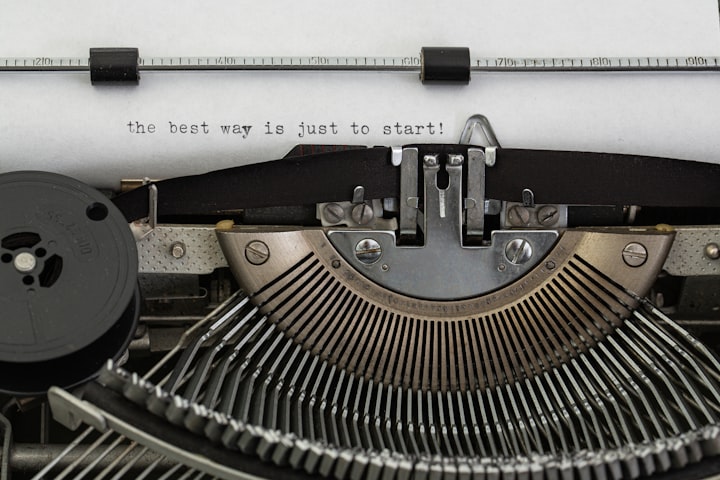It All Starts With A Comic Book Hero
A healthy appetite for reading and an overdose of Wilbur Smith ignites the fire

Writing and reading have always played an important role, to one degree or another, in my life and will continue to do so, I’m sure.
As a young boy in Standard 6 (Std 6) in high school at around the age of 13, I discovered that I had a way with words, especially when it came to writing. This was noticeable in the good marks I was getting in essays, called compositions in South Africa back in the day. Looking back, I attribute this to reading. I read a lot, progressing from comic books, the Hulk, Captain America, Iron Man, Superman, Batman, Daredevil, Spiderman … and children's books like the Secret Seven, the Famous Five, William, Billy Bunter, and even the odd Nancy Drew (giving away my age here) among many others.
By Std 6 I was already into adult adventure stories, where characters had sex, got badly wounded in accidents, fights, war, and died. Many times horribly. Others were actually murdered! It was perhaps inevitable that prolific South African author Wilbur Smith (Northern Rhodesia-born, now Zambia) would be the writer that transitioned me from children's books to adult novels.
I sneakily read Smith’s debut novel When The Lion Feeds (1964) at the time when it was banned in South Africa and immediately became hooked on both the author and the genre, reading most of his novels.
I could carry on with the names of many best-selling authors who over the years captivated me and deepened my love for a great story and an intriguing plot over a wide range of genres. Wilbur Smith, Stephen King, Dean Koontz, Ken Follet, Jack Higgins, James Hadley Chase, Jeffrey Archer, Harlan Coben Lee Child, John Grisham… and continue to do so.
Suffice to say, I was a compulsive reader, a book for the toilet, a book for the bath, a book for bed, a book for school… and still am today. I never go to an appointment, a doctor, the dentist, to renew a car license, anywhere without taking a book along. It's my best friend at places like that!
It would be so easy to use the expression “it goes without saying”, and complete it by writing/saying “…that reading a lot translates to writing a lot.”
I wish that was automatically true, and I know wouldn’t be wrong in saying that for many writers out there it is true. But for me, it’s not. You don't have to twist my rubber arm to get me to open a book, in fact, you may have to twist it to get me to stop reading!
However, with writing, it's a different story. As a former newspaper journalist, it was my job to write and that's what I did when I went to work each day. And as any print journo knows, you have irritating people like editors breathing down your neck and the dreaded "deadline" to deal with.
It's an interesting life being a newspaper reporter and they always have stories to tell, normally in a pub after stories are done and copy has passed out of your hands and moved on to the next stage in the production line. The production line being the layout artists, the sub-editors, the revise subs, the proofreaders, and then finally to be signed off by the chief sub. It's not for nothing newspaper hacks have been described as drunken, decadent, deadline junkies!
But my journalist days are a story for another time, the point I'm trying to make here is that as a freelance writer, there is no editor breathing down your neck or giving you a story to cover, such as a court case, a crime scene, a fatal accident, a murder, a funeral, a sporting event if you are a sports reporter.
Whatever your assignment, or assignments, for the day is or are, there's your content to write, you don't have to rack your brain on what to write about. The real task, after gathering the information is to write the report in a logical, interesting way, starting with an introduction that will grab the readers' attention and then copy that will keep them reading to the end of the story. It sells newspapers.
As a reporter you don't even have to worry about the headline, it's the sub's job and ultimately the chief sub who has the final say and makes the change to your fantastic headline if you are sub-editor. A headline changes all the way up the line, and as a sub-editor you hope your headline survives the journey and is there in all its unchanged glory in the next edition. Even though the sub didn't write the story and it's not his byline under it, it's his headline! In fact, if you are the reporter who wrote the story, you are generally highly pissed off when you read the often mangled, shortened, changed version of your masterpiece the next day. It could even be so unrecognizable that you are embarrassed it's your byline under it!
As a freelancer you have to come up with your own idea, you write your story, sub-edit, shorten, lengthen, change, rewrite, and maybe tweak it yet again. There's not another set of eyes that gives your article a final once over before you click on the magical "publish", unless your partner, wife, husband, or another member of your family is a writer themself. There's no editor giving you an assignment that takes care of the "what do I write about"? part.
It can be hard coming up with an idea, sometimes it comes easy, whichever way, the final product is yours and you live or die by it!
It's taken a while but the point I'm trying to make is that the skillsets you learned and polished from being a print journalist are without doubt an advantage you have over an aspiring writer who does not possess them and has to "learn on the job".
But like anything in life, the more you practice something the better you get at it and for me that means stop procrastinating, get off my arse and start writing. Every day, as if I still had a job at a newspaper.
About the Creator
Jeffrey van Blerk
Retired former newspaper journalist in South Africa with 25 years of experience. Spent several years teaching English in Southeast Asia and learned more about life than what I was imparting to my young students.
It's time to share!






Comments
There are no comments for this story
Be the first to respond and start the conversation.